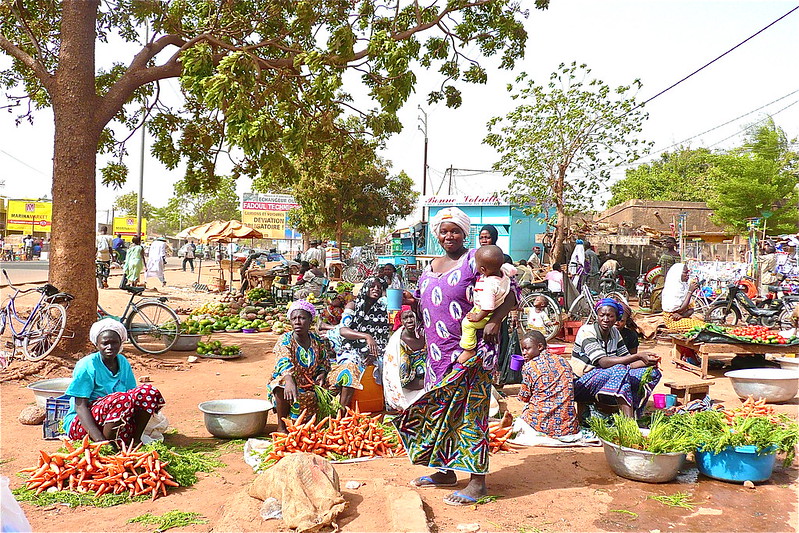Poverty Reduction in Burkina Faso
 Landlocked among other West African nations, Burkina Faso’s struggle against poverty spans centuries. Despite a past of radical politics, with serious efforts to redistribute wealth and reduce poverty, the country is considered to be one of the least developed in the world. Efforts in favor of poverty reduction in Burkina Faso are underway, but there are several hurdles to tackle.
Landlocked among other West African nations, Burkina Faso’s struggle against poverty spans centuries. Despite a past of radical politics, with serious efforts to redistribute wealth and reduce poverty, the country is considered to be one of the least developed in the world. Efforts in favor of poverty reduction in Burkina Faso are underway, but there are several hurdles to tackle.
The country ranks 185th out of 193 others in the Human Development Index, which tracks levels of national development in health, education, income and living conditions. “More than 40% of the population lives below the national poverty line” due to limited natural resources, a lack of development and political instability.
History of Violence
Burkina Faso has faced considerable turbulence over the years. Originally a French colony, under self-governance the nation saw further political violence occur in several coup d’état’s with governments overthrown as recently as 2022.
Recently, armed Islamist groups propagating large-scale violence have contributed to widespread impoverishment. This has led to “over 237,000 people fleeing their homes in 2021” with the government struggling to care for the increasing number of displaced while maintaining suitable levels of stability and rule of law.
Policies for Poverty Reduction in Burkina Faso
Previous governments have made poverty reduction in Burkina Faso a primary political concern. Former president Thomas Sankara, for example, took several steps towards national self-reliance through legislation against his country’s impoverishment. This was seen with infrastructure projects, redistribution of land reform, or educational and healthcare development.
The contemporary political climate in Burkina Faso complicates proposals of poverty reduction. However, government initiatives alongside non-governmental organizations persist. In May 2024, USAID pledged “nearly $55 million in additional, urgent humanitarian assistance to continue addressing emergency food and nutrition needs of the most vulnerable.” At the same time, relief and development charities such as Christian Aid have worked since the 1970s in confronting the cause and consequences of poverty, with the latter operating across four provinces, thirteen municipalities and 353 villages. Poverty alleviation is implemented through strategic partnerships, emergence support, income generation and resilient farming techniques. These methods were utilized most recently with the “Breaking the Barriers” program. The program covered several other African nations with a key focus on women’s working and living conditions.
Currently, the European Commission highlights three key priorities: inclusive human development, a green, resilient economy and peaceful social cohesion. These recommendations, regardless of their applicability, are made less viable by the turbulent legal and political status of the country.
Political Rejuvenation
Since the successive coup attempts in 2022, Ibrahim Traore has governed Burkina Faso. A military leader with similar ideological influences and sensibilities to Sankara. Traore committed himself to dealing with both the terrorism from Islamist insurgents and the humanitarian crisis that it has produced.
As of 2024, the persistence of these issues – and poverty in the country on a wider level – prompted the Institute for Security Studies to critique Burkina Faso’s withdrawal from ECOWAS, a political and economic union of 15 West African Countries. Meanwhile, the current government demonstrates closer ties to Russia. This is evident by “the steady increase in Russian soldiers on missions, the landing of Russian aircraft, and a visit to the Kremlin in July 2023.”
Uncertainty prevails in Burkina Faso. However, efforts in favor of poverty reduction will continue. The viability of these efforts will depend upon resolving the present instability and violence. In doing so, efforts against poverty may be better implemented. Furthermore, this could lead to improving self-reliance, economic opportunity, and social cohesion in the country under a lasting peace.
– Cameron Bowles
Cameron is based in London, UK and focuses on Politics for The Borgen Project.
Photo: Flickr
